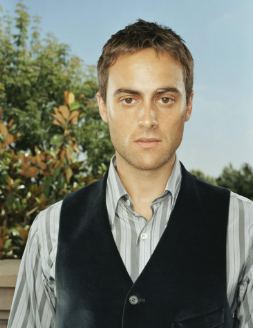

Let it be understood that we cannot go outside of this alternative: liberty, inequality, survival of the fittest; not-liberty, equality, survival of the unfittest. The former carries society downwards and favours all its worst members. The most vigorous and influential social Darwinist in America was William Graham Sumner of Yale. Sumner not only made a striking adaptation of evolution to conservative thought, but also effectively propagated his philosophy through widely read books and articles, and converted his strategic teaching post in New Haven into a kind of social-Darwinian pulpit. He provided his age with a synthesis which, though not quite so grand as Mr. Spencer’s, was bolder in its stark and candid pessimism. Mr. Sumner’s synthesis brought together three great traditions of western capitalist culture: the Protestant ethic, the doctrines of classical economics, and Darwinian natural selection. Correspondingly, in the development of American thought Mr. Summer played three roles: he was a great Puritan preacher, an exponent of the classical pessimism of Ricardo and Malthus, and an assimilator and popularizer of evolution. His sociology bridged the gap between the economic ethic set in motion by the Reformation and the thought of the nineteenth century, for it assumed that the industrious, temperate, and frugal man of the Protestant ideal was the equivalent of the “strong” of the “fittest” in the struggle for existence; and it supported the Ricardian principles of inevitability and laissez faire with a hard-bitten determinism that seemed to be at once Calvinistic and scientific. #RandolphHarris 1 of 19

Sumner was born in Paterson, New Jersey, on October 30, 1840. His father, Thomas Sumner, was a hard-working, self-educated English labourer who had come to America because his family’s industry was disrupted by the growth of the factory system. He brought up his children to respect the traditional Protestant economic virtues, and his frugality left a deep impress upon his son William, who came in time to acclaim the savings-bank depositor as “a hero of civilization.” The sociologist later wrote of this father: His principles and habits of life were the best possible. His knowledge was wide and his judgment excellent. He belonged to the class of men whom Caleb Garth in Middlemarch is the type. In early life I accepted, from books and other people, some views and opinions which differed from his. At the present time, in regard to these matters, I hold with him and not with others.” The economic doctrines of the classical tradition which were current in his early years strengthened Sumner’s paternal heritage. He came to think of pecuniary success as the inevitable product of diligence and thrift, and to see the lively capitalist society in which he lived as the fulfillment of the classical ideal of an automatically benevolent, free competitive order. At fourteen he had read Harriet Martineau’s popular little volumes, Illustrations of Political Economy, whose purpose was to acquaint the multitude with the merits of lassie faire through a series of parables illustrating Ricardian principles. #RandolphHarris 2 of 19

There he became acquainted with the wage-fund doctrine, and its corllaries: “Nothing can permanently affect the rate of wages which does not affect the proportion of population to capital”; and “combinations of labourers against capitalists…cannot secure a permanent rise of wages unless the supply of labour falls short of demand—in which case, strikes are usually unnecessary.” There also he found fictional proof that “a self-balancing power being…inherent in the entire system of commercial exchange, all apprehensions about the result of its unimpeded operations are absurd,” and that “a sin is committed when Capital is diverted from its normal course to be employed in producing at home that which is expensive and inferior, instead of preparing that which will purchase the same article cheaper and superior abroad.” Charities, whether public or private, Miss Martineau held, would never reduce the number of the indigent, but would only encourage improvidence and nourish “peculation, tyranny, and fraud.” Later Sumner declared that his conceptions of “capital, labour, money and trade were all formed by those books which I read in my boyhood.” Francis Wayland’s standard text in political economy, which he recited in college, seems to have impressed him but little, perhaps because it only confirmed well-fixed beliefs. In 1859, when he matriculated at Yale, young Sumner devoted himself to theology. During undergraduate years Yale was still a pillar of orthodoxy, dominated by its versatile president, Theodore Dwight Woolsey, who had just turned from classical scholarship to write his Introduction to the Study of International Law, and by the Rev. Noah Porter, Professor of Moral Philosophy and Metaphysics, who as Woolsey’s successor would one day cross swords with Sumner over the proper place of the new science in education. #RandolphHarris 3 of 19

Sumner, a somewhat frigid youth (who could seriously ask, “Is the reading of fiction justifiable?”) repelled many of his schoolmates; but his friends made up in munificence what they lacked in number. One of them, William C. Whitney, persuaded his elder brother Henry to supply funds for Sumner’s further education abroad; and the Whitneys secured a substitute to fill his place in the Union Army while Sumner pursued theological studies at Geneva, Gottingen, and Oxford. In 1868 Sumner was elected to a tutorship at Yale, beginning a lifelong association with its faculty that would be broken only by a few years spent as editor of religious newspaper and reactor of the Episcopal Church in Morristown, New Jersey. In 1872 he was elevated to the post of Professor of Political and Social Science in Yale College. Despite personal coldness and a crisp, dogmatic classroom manner, Sumner had a wider following than any other teacher in Yale’s history. Upperclassmen found unique satisfaction in his course; lowerclassmen looked forward to promotion chiefly as a means of becoming eligible to enroll in them. William Lyon Phelps, who took every one of Sumner’s courses as a matter of principle without regard for his interest in the subject matter, as left a memorable picture of Sumner’s dealings with a student dissenter: “Professor, don’t you believe in any government aid to industries?” “No! It’s root, hog, or die.” “Yes, but hasn’t the hog got a right to root?” “There are no rights. The World owes nobody a living.” “Yo believe then, Professor, in only one system, the contract-competitive system?” “That’s the only sound economic system. All others are fallacies.” “Well, suppose some professor of political economy came along and took your job away from you. Wouldn’t you be sore?” “Any other professor is welcome to try. If he gets my job, it is my fault. My business is to teach the subject so well that no one can take the job away from me.” The stamp of his early religious upbringing and interests marked all Sumner’s writings. #RandolphHarris 4 of 19

Although clerical phraseology soon disappeared from his style, his temper remained that of a proselytizer, a moralist, an espouser of causes with little interest in distinguishing between error and iniquity in his opponents. “The type of mind which he exhibited,” writes his biographer, “was the Hebraic rather than the Greek. He was intuitive, rugged, emphatic, fervently and relentlessly ethical, denunciatory, prophetic.” He might insist that political economy was a descriptive science divorced from ethics, but his strictures on protectionist and socialists resounded with moral overtones. His popular articles are read like sermons. Sumer’s life was not entirely given to crusading. His intellectual activity passed through two overlapping phases, marked by a change less in his thought than in the direction of his work. During the 1870’s, 1880’s and early 1890’s, in the columns of popular journals and from the lecture platform, he waged a holy war against reformism, protectionism, socialism, and government interventionism. In this period, he published What Social Classes Owe to Each Other (1883), “The Forgotten Man” (1883), and “The Absurd Effort to Make the World Over” (1894). In the early 1890’s, however, Sumner turned his attention more to academic sociology. It was during this period that the manuscript of “Earth Hunger” was written, and the monumental Science of Society projected. When Sumner, always a prodigious worker, found that his chapter on human customs had grown to 200,000 words, he decided to publish it as a separate volume. Thus, almost as an afterthought, Folkways was brought out in 1906. Although the deep ethical feeling of Sumner’s youth gave way to the sophisticated moral relativism of his social-science period, his underlying philosophy remained the same. #RandolphHarris 5 of 19

The Christian scriptures name obstacles the aspirant may have to deal with. They are frivolity, changeableness, unruly desires, dissatisfaction, gratification of the senses, and craving for the ego’s existence. Even if he finds himself in a moral solitude, as he may in earlier years, it is still worthwhile to be loyal to ideals. He must cast off the long mantle of arrogance and put on the short coat of humility. A lapse in artistry may be pardoned but a lapse in sincerity may not. Be sincere! That is the message from soul to self, from God to man. It is not man’s own voice, which is to acclaim him as a master, but his life. His willingness to acknowledge he has faults and lots of them is admirable—so few ever like to confess such a thing—but they are not so deep or so numerous as he imagines. He should not forget that he has some merits too and they are able to balance the others and keep them where they belong. As for perfection, alas, the self-actualized Christian too is still striving for it. Pride can take a dozen different disguises, even the disguise of its very opposite, humility. The quicker he grows and the father he goes on this quest, the more an aspirant must examine his character for its traces and watch his actions to detect it. He is indeed a prudent man who refuses to be blinded by passions or deluded by appearances. He does not know in advance what he will do in every new situation that arises—who does?–but only what he will try to do, what principles he will try to follow. He who trims his sails to the winds of expediency reveals his insincerity. #RandolphHarris 6 of 19

It is true that environment contributes to the molding of character but not true that it creates or even dominates character. Thought and will are linked with our own rebirth in Jesus as the Christ. Character can be improved by effort and Grace. If we will only attend to the first and persistently carry out the inner work required on ourselves, destiny will attend to the second and not seldom remove the outer obstacles or improve the outer environment in the process. Each person who enters our life for a time, or becomes involved with it at some point, is an unwitting channel bringing good or evil, wisdom or foolishness, fortune or calamity to us. This happens because it was preordained to happen—under the law of recompense. However, the extent to which he affects our outer affairs is partly determined by the extent to which we let him do so, by the acceptance or rejection of suggestions made by his conduct, speech, or presence. It is we who are finally responsible. The victim of exterior suggestion is never quite an innocent victim, for his own quota of consent must also be present. When a therapist is experiencing a warm, beneficial and acceptant attitude toward what is in the client, this facilitates change. It involves the therapist’s genuine willingness for the client to be whatever feeling is going on in him at that moment—fear, confusion, pain, pride, anger, hatred, love, courage, or awe. It means that the therapist cares for the client, in a non-possessive way. It means that he prizes the client in a non-possessive way. The is accepted in a total rather than conditional way. He does not simply accept the client when he is behaving in certain ways and disapproves of him when he behaves in other ways. It means an outgoing optimistic feeling without reservations, without evaluation. This is known as an unconditional beneficial regard. Again, research studies show that the more this attitude is experienced by the therapist, the more likelihood there is that therapy will be successful. #RandolphHarris 7 of 19

Empathic understanding is when the therapist is sensing the feelings and personal meanings which the client is experiencing in each moment, when he can perceive these from “inside,” as they seem to the client, and when he can successfully communicate something of that understanding to his client, then this condition is fulfilled. Each of us has discovered that this kind of understanding is extremely rare. We neither receive it nor offer it with any great frequency. Instead, we offer another type of understanding which is very different. “I understand what is wrong with you”; “I understand what makes you act that way”; or “I too have experienced your trouble and I reacted very differently”; these are the types of understanding which we usually offer and receive, an evaluative understanding which we usually offer and receive, an evaluative understanding from the outside. However, when someone understands how it feels and seems to be me, without wanting to analyze me or judge me, then I can blossom and grow in that climate. And research bears out this common observation. When the therapist can grasp the moment-to-moment experiencing occurring in the inner World losing the separateness of his own identity in this emphatic process, then change is likely to occur. Studies with a variety of clients show that when these conditions occur in the therapist, and when they are to some degree perceived by the client, therapeutic movement ensures, the client finds himself painfully but learning and growing, and both he and the therapist regard the outcome as successful. From our perspective, it seems that it is attitudes such as these rather than the therapist’s technical knowledge and skill, which are primarily responsible for therapeutic change. #RandolphHarris 8 of 19

Not later than high school every student should receive a solid course of instruction in general psychology. Such a course should enable the student to see that the behaviour of people is proper, indeed a crucial, area for the application of scientific method. He should be introduced to the general principles that have been uncovered through careful study of how people learn, how they perceive their World, how they acquire attitudes and how those attitudes influence their modes of adjustment. The aim of such a general psychology course taught at the secondary level would be not simply to provide the student with an awareness of the substantive content of psychology as a field of human inquiry but, more importantly, to instill in him attitudes toward behaviour, his own and that of other persons, likely to encourage and maintain hygienic personal relationships. The study of psychology encouraged an attitude of objectivity and persisting examination of reasons for behaviour; it provides a foundation and stimulus for the student to seek to understand himself and others. With a scientifically psychological orientation toward the understanding both of self and others the individual is less likely to be victimized either by his own emotions or by the irrationalities of others. An adequate general psychology would introduce the student to the “psychology of everyday life,” would sensitize him to the meaning of errors, oversights, and momentary distortions in his perceptions and thought. With this instruction he would have at least the equipment, if not the motivation, for the life-long exploration of his own developing personality—for the continual challenge to self-realization and self-understanding. #RandolphHarris 9 of 19

As the frontiers of geograpy have been progressively pushed back and exhausted, it becomes increasingly difficult for the average man to be an explorer, to make discoveries. For the average man, the last frontier challenging his urge to search and to uncover new lands if provided by the complex vastness of his own mind, by the boundaries of his own spirit. It is a sorry epiphenomenon of the mental health movement that many persons who are admirably equipped to embark on this voyage and who long for insight for the sheer sake of discovery and not out of any pressing need, have been persuaded that they require the services of an expert guide. While it is true that the psychotherapist may shorten the trip to the island of insight it is not certain that the seeker cannot find it on his own, or that he will be significantly discommoded by the longer journey. Sound courses in psychology and inspired instruction can afford possibly a reduction in the susceptibility to neurosis. Certainly, it can reduce the number of sentient persons who relinquish the responsibility and privilege (and the exquisite rewards) of a personal, life-long exploration of their existence, and who in so doing waste the time and energies of the therapists whose skills are required by those voyagers who are truly lost. Until recently courses in psychology have been almost totally restricted to colleges and universities, and in these settings, they have frequently been unavailable before the sophomore year. While the proportion of the college-age population attending institutions of higher learning is steadily rising, it is still very small. Consequently, it is good to find increasing signs of thoughtful planning for the introduction of psychology as a basic subject in high school, and experience with such instruction is being carefully recorded. #RandolphHarris 10 of 19

The study of psychology is not provided by courses in how to be successful, how to be proper, and the like. There is a need for research to determine at what minimal age levels a formal course in psychology can be effectively introduced. Considering the central role of psychological phenomena in the enitre life of the individual it seems incredible that we have been so slow to find a place for the study of psychology in our secondary school curricula. The mental health movement should lend its resources and energies to supporting those teachers and educational leaders who are seeking to find a stable and adequate place for the study of psychology in our secondary schools. In our ongoing case study of Clare, it struck her that there was a contrast between the two men she was focused on. One man rescued her from drowning; in connection with the man in the novel she was reading, a similarity occurred because he offered the girl a refuge from abuse and brutality. Bruce and the great man of her daydream, while not saving her from any danger, also played a protective role. As she observed this repetitious motif of saving, shielding, sheltering, she realized that she craved not only “love” but also protection. She also saw that one of the values Peter had for her was his willingness and ability to give advice and to console her when she was in distress. A fact occurred to her in this context that she had known for quite a while—her defenselessness when under attack or pressure. She saw now that it produced, in turn, a need for somebody to protect her. Finally, she realized that her longing for love or marriage had always increased rather acutely whenever life became difficult. #RandolphHarris 11 of 19

In recognizing that a need for protection was an essential element in her love life Clare took a great step ahead. The range of demans that this apparently harmless need embraced, and the role it played, became clear only much later. It may be interesting to compare this insight into a problem with the last one reported regarding the same problem, the insight concerning her “private religion.” The comparison reveals a frequent happening in psychoanalytical work. A problem is first seen in its barest outline. One does not recognize much beyond the fact that it exists. Later one returns to the same problem with a much deeper understanding of its meaning. The feeling would be unwarranted in such a case that the alter finding is not new, that one has known it all along. One has not known it, at least not consciously, but the way for its emergence has been prepared. Despite a certain superficiality this first insight struck the initial blow at Clare’s dependency. However, she glimpsed her need for protection, she did not yet realize its nature, and she could not draw the conclusion that this was one of the essential factors in her problem. She also ignored all the material in the daydream of the great man, material indicating that the man she loved was expected to fulfill many more functions than mere protection. Experiences with pleasures of the flesh can be simply sensuously pleasurable without the depth of love but also without a marked degree of greed. The arousal involving pleasures of the flesh is physiologically stimulated, and it may or may not lead to human intimacy. The opposite of this kind of desire involving pleasures of the flesh is characterized by an opposite sequence, namely, that love creates the desire for pleasures of the flesh. This means that a man and a woman may feel a deep sense of love for each other in terms of concern, knowledge, intimacy, and responsibility, and that this deep human experience arouses the wish for physical wisdom. #RandolphHarris 12 of 19

It is obvious that this second type of desire for pleasures of the flesh will occur more frequently, although by no means exclusively so, among people beyond their mid-twenties and that it is the basis for the continuation of desires of pleasures of the flesh in monogamous human relationships of long duration. Where this type of arousal with pleasures of the flesh does not take place, it is natural that—aside from sexual perversions which might bind two people together for a lifetime because of the individual nature of their perversion—the merely physiological arousal will tend to require change and new experiences with pleasures of the flesh. Both these kinds of arousals of pleasures of the flesh are fundamentally different from the greedy one that is essentially motivated by anxiety or narcissism. Despite the complexity of the distinction between greedy and “free” sexuality, the distinction exists. Everyone who becomes aware of and sensitive to the difference can observe in himself and herself the various types of arousal, and those with more experimentation in pleasures of the flesh than was the case in middle class of the Victorian age may be supposed to have rich material for such observation. They may be supposed to have, because, unfortunately, increased experimentation with pleasures of the flesh has not been combined sufficiently with greater discernment of the qualitative differences in experience with pleasures of the flesh—although I am sure that a considerable number of people exist who, when they reflect upon these matters, can verify the validity of the distinction. If you are one of those people with what some call an overactive imagination, you had better watch out for those people who will see it and exploit it. It is relatively easy to get people with vivid imaginations to fall for things. After all, they can picture what the speaker is saying. Their emotions get all caught up in stuff without them even meaning to. #RandolphHarris 13 of 19

Modern man, in industrial society, has changed the form and intensity of idolatry. He has become the object of blind economic forces which rule his life. He worships the work of his hands; he transforms himself into a thing. Not the working class alone is alienated (in fact, if anything, the skilled worker seems to be less alienated than those who manipulate men and symbols) but everybody is. This process of alienation which exists in the European-American industrialized countries, regardless of their political structure, has given rise to new protest movements. The renaissance of socialist humanism is one symptom of this protest. Precisely because alienation has reached a point where it borders on insanity in the whole industrialized World, undermining and destroying its religious, spiritual, and political traditions and threatening general destruction through nuclear war, many are better able to see that Marx had recognized the central issue of modern man’s sickness; that he had not only seen, as Feuerbach and Kierkegaard had, this “sickness” but that he had shown that contemporary idolatry is rooted in the contemporary mode of production and can be changed only by the complete change of the socioeconomical constellation together with the spiritual liberation of man. Surveying the discussion of Dr. Freud and Marx’s respective views on mental illness, it is obvious that Dr. Freud is primarily concerned with individual pathology, and Marx is concerned with the pathology common to a society and resulting from the system of that society. It is also clear that the content of psychopathology is quite different for Marx and for Dr. Freud. Dr. Freud sees pathology essentially in the failure to find a proper balance between the Id and Ego, between instinctual demands and the demands of reality; Marx sees the essential illness, as what the nineteenth century called la maladie du siecle, the estrangement of man from his own humanity and hence from his fellow man. #RandolphHarris 14 of 19

Yet it is often overlooked that Dr. Freud by no means thought exclusively in terms of individual pathology. He speaks also of a “social neurosis.” “If the evolution of civilization,” he writes “had such a far-reaching similarity with the development of an individual, and if the same methods are employed in both, would not the diagnosis be justified that many systems of civilization—or epochs of it—possibly even the whole of humanity—have become “neurotic” under the pressure of civilizing trends? To analytic dissection of these neuroses, therapeutic recommendations might follow which would claim a great practical interest. However, it behooves us to be very careful, not to forget that after all we are dealing only with analogies, and that it is dangerous, not only with men but also with concepts, to drag them out of the region where they originated and have matured. The diagnosis of collective neuroses, moreover, will be confronted by a special difficulty. In the neurosis of an individual, we can use as a starting point the contrast presented to us between the patient and his environment which we assume to be “normal.” No such background as this would be available for any society similarly affected; it would have to be supplied in some other way. And regarding any therapeutic application of our knowledge, what would be the use of the most acute analysis of social neuroses, since no one possesses the power to compel the community to adopt the therapy? Despite all these difficulties, we may expect that one day someone will venture upon this research into the pathology of civilized communities. However, in Dr. Freud’s interest in the “social neuroses,” one fundamental difference between Dr. Freud’s and Marx’s thinking remains: Marx sees man as formed by his society, and hence sees the root of pathology in specific qualities of the social organization. #RandolphHarris 15 of 19

Dr. Freud sees man as primarily formed by his experience in the family group; he appreciates little that the family is only the representative and agent of society, and he looks at various societies mainly in terms of the quantity of repression they demand, rather than the quality of their organization and of the impact of this social quality on the quality of the thinking and feeling of the members of a given society. This discussion of the difference between Marx’ and Dr. Freud’s views on psychopathology, brief as it is, must mention one more aspect in which their thinking follows the same method. For Dr. Freud the state of primary narcissism of the infant is not a sick infant. Yet the dependent, greedy adult, who had been “fixated” on, or who has “regressed” to, the oral level of the child is a sick adult. The main needs and strivings are the same in the infant and in the adult; why then is the one healthy and the other sick? The answer obviously lies in the concept of evolution. What is normal at a certain stage is pathological at another stage. Or, to put it differently: what is necessary at one stage is also normal or rational. What is unnecessary, seen from the standpoint of evolution, is irrational and pathological. The adult who “repeats” an infantile stage at the same time does not and cannot repeat it, precisely because he is no longer a child. Marx following Hegel, employs the same method in viewing the evolution of man in society. Primitive man, medieval man, and the alienated man of industrial society are sick and yet not sick, because their stage of development is a necessary one. Just as the infant must mature physiologically to become an adult, so humans must mature sociologically in the process of gaining mastery of nature and of society to become fully human. #RandolphHarris 16 of 19

All irrationality of the past, while regrettable, is rational because it was necessary. However, when the human race stops at a stage of development which it should have passed, when it finds itself in contradiction with the possibilities which the historical situation offers, then its state of existence is irrational or, if Marx had used the term, pathological. Both Marx’s and Dr. Freud’s concepts of pathology can be understood fully only in terms of their evolutionary concept of individual and human history. The victim of exterior suggestion is never quite an innocent victim, for his own quota of consent must also be present. It is perfectly true that environment does count, and often heavily, in the sum of life. However, if one’s faith is strong enough or if one’s understanding is deep enough, it is also true that the quest can be pursued effectively anywhere, be it a slum tenement or a stockbroker’s office. It is easier to pursue it in some places, harder in others, but the law of compensation always operates to even matters out. If there is a total giving-up of oneself to this higher aim, sooner or later there will be a total result, whatever the external circumstances may be. What is in a man, in his character, his mind, and his heart is, in the end, much more important than what is in his surroundings; but his surroundings have their own importance, for they either limit or they promote what he can do. With most people the reaction to their environment and to events is mainly impulsive and mostly uncontrolled. So the first step for them is to become conscious of what they are doing, the second being to refuse to do it when reflection and wisdom dictate a better course. All this implies a taking hold of the self and a disciplining of its mechanism—body, feelings, and thoughts. It leads to using the self with awareness and functioning it with efficiency. #RandolphHarris 17 of 19

Being a firefighter is very rewarding, but it also comes with risks, and even recovery can have unforseen risks. A firefighter we will call Brunno Groning shares his story with us. “Four months out of the fire academy, I had had a lot of garbage runs, you know, smoke scares and pots of food. Then one day we had a fire in an attic, and we had the old service masks, just a canister and a face piece. I was climbing through the attic, and the flap of my coat kept coming down over the intake hole of my mask. It was cutting my air off, and the only air I was getting was the air that I was breathing out. I was hyperventilating. The next thing I knew, I was lying on my side, and I thought, “What the (expletive) is going on here?” I was laying on a rafter, and I just rolled over and fell through the plasterboard into a closet. There were no injuries or anything. Looking back on it, I thought, ‘Hey, I could have died up there.’ I could have been pinned or whatever and never come out. After that, three of us were on top of a house extension, it was a summer kitchen, and we were pulling some boards down when the whole thing collapsed. Fire and the rot of the old timbers brought it down. I didn’t know I was injured until I took about four steps, and my leg went out that way. Bot the led and the ankle were broken. They sent me to Mercy Hospital, that’s where they used to send us, and the hospiutal sent me home. To let the swelling go down, they said. The doctor told me to come in on Saturday and he would put it in a cast. The guy was a boozer, and I looked at him that morning, and he had half a jacket on. I looked down, and he had two different shoes on, a brown wingtip and a black one. And I said, ‘Oh, (expletive).’ When he was wrapping the foot, I kept telling him he was wrapping it too tight. He said he had to go play golf. He said, ‘If your toes turn blue, come back in.’ Well, I got home, and they turned black on me. So I went to the hospital, and they took that cast off and put another one on. #RandolphHarris 18 of 19

“I was out of work seven months that time. I had to go for whirlpool treatments, and one day the leg was in the whirlpool and the technician came in and said he had to take the hospital rig to a fire, so he left. That temperature gauge on the side climbed up in the red, and I was like, ‘What’s going on here?’ I wound up with blisters on my leg from that. If it had been too hot to start with, I couldn’t have put my leg in it. But it was like, you know, if you’re sitting in a warm tub you can stand the water getting hotter and hotter. The guy, being in a rush to get to the fire, didn’t adjust the temperature right. So you could day I was in a job that was dangerous, and I was surrounded by people who were dangerous, too.” It is perfectly true that environment does count, and often heavily, in the sum of life. However, it is also true that is one’s faith is strong enough or if one’s understanding is deep enough, the quest can be pursued effectively anywhere, be it a slum tenement or a stockbroker’s office. It is easier to pursue it in some places, harder in other, but the law of compensation always operates to even matter out. If there is a total giving-up of oneself to this higher aim, sooner or later there will be a total result, whatever the circumstances may be. What is a man, in his character, his mind, and his heart is, in the end, much more important than what is in his surroundings; but his surroundings have their own importance, for they either limit or they promote what he can do. Please show support for the Sacramento Fire Department by making a contribution. Wisdom is the greatest good, for it does not depart for man. I pledge allegiance to the flag of the United States of America, and to the Republic for which it stands, one nation, under God, indivisible, with liberty and justice for all. #RandolphHarris 19 of 19


And can I ever bid these joys farewell? Yes, I must pass them for a nobler life, where I may find the agonies, the strife of human hearts: for lo! I see afar, o’ersailing the blue cragginess, a car and steeds with streamy manes–the charioteer looks out upon the winds with glorious fear: and now the numerous tramplings quiver lightly along a huge cloud’s ridge; and now with sprightly wheel downward come they into fresher skies, tipt round with silver from the sun’s bright eyes.

This Mother’s Day, treat your loved one with a delightful brunch experience at Winchester Mystery House, complete with delicious food, live music and a Mansion Tour! 💐

Tickets on sale now, learn more at the link in bio. https://winchestermysteryhouse.com/




